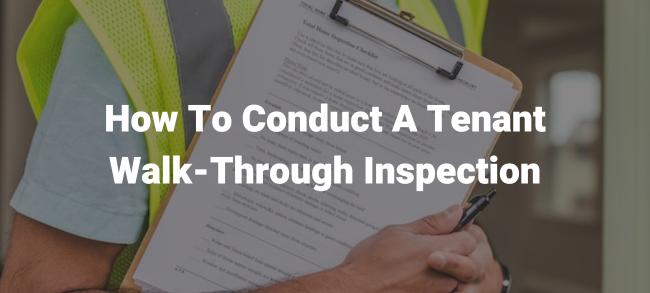Becoming a DIY Landlord? 6 Mistakes to Avoid

Being a self-managing landlord can be common, with many beginners typically being overcome with excitement upon purchasing an investment property. They often go the DIY route. They may also convert a former home into a rental space to earn passive income.
Though self-managing landlords have good intentions, they can also be exposed to more risks from lack of experience. They can even make mistakes that result in significant financial losses.
Here are some of the most common mistakes made by DYI landlords and how to avoid them:
1. Not Creating a Solid Leasing or Rental Agreement
New landlords can neglect to craft a lease especially when renting out to their friends and relatives. This can become a headache should future conflicts occur. Avoid this situation by preparing a leasing contract. You protect yourself further if you have a written agreement signed by all parties involved in the leasing process.
It’s much easier to have a written document that guides the tenants’ on the agreed upon terms and conditions. Enforcement also becomes easier when a leasing or rental agreement is present. What’s more, the document is legal proof to present to court should litigation occur or you need to deal with a holdover tenant. You can show the lease to a lawyer before presenting it to a tenant or hire a property management company to handle this particular service.

2. Lack of Detailed Property Inspection
As the property owner, you have the responsibility of maintaining the rental unit in peak form. Though renters are also understood to perform the basics such as maintaining a hygienic environment by throwing the trash in the proper receptacles for instance, landlords must continue to be vigilant in their duties by not skipping property inspections.
One way to reduce tenant complaints is to perform regular inspections. You can save on repair costs by being able to spot signs of minor damages before they become bigger issues. As the property owner, you’re also generally responsible for keeping up with the safety standards and adhering to the health and safety rules.
So ensure that you maintain a safe and habitable dwelling and remain up-to-date on local and state ordinances related to these matters.
3. Lack of Market Awareness
Some self-managing landlords aren’t sure how to analyze whether or not they’ve set the right price for their unit. This can however be easily accomplished by evaluating active listings. Prior to advertising, it’s best to assign an accurate rental rate by looking at your competition in the neighborhood.
Another way that DIY landlords short-changed themselves is failing to raise the rental fee every year. Given that property maintenance expenses and additional amenities and upgrades are made, it’s only practical to adjust the rent. Taxes are also known to raise so it’s best to consider this before sending a renewal letter.

Note that before you make changes to the rent price or the lease you should check state laws to ensure that you make these adjustments in accordance with all rental regulations.
4. Covering Information on Lead Paint Presence in Your Property
Under the landlord-tenant laws, property owners are required to disclose information on lead-based paint. It’s the duty of the owner to inform the renters especially when the rental was constructed before 1978. This disclosure must be provided to all renters, even the renewing ones.
Should landlords fail to disclose the presence of lead paint in the rental unit, they can be subjected to a hefty $10,000 penalty. With multiple tasks and responsibilities, it’s easy for DIY landlords to forget this detail. However, the cost of failing to follow this disclosure rule can result in a financial loss. It’s therefore very important for self-managing landlords to always read and update themselves on property laws.
5. Dismissing the Learning Curve
Operating a rental unit requires patience, good communication skills, tax knowledge and being well-versed with landlord-tenant laws. It’s not a skill you can master in 6 months or so. There are so many details you need stay on top of as a landlord, that it can become very easy to forget something. Even when you’re conducting tenant screening, for instance, you might unknowingly break the Fair Housing Act which protects a group of classes from being discriminated against.

It’s therefore advisable to seek assistance early on if you’re a new landlord. Engage the services of experienced property management companies. They have the professional skills, wide resources and efficient systems to help you achieve great returns from your property investment while ensuring full legal compliance with rental laws.
6. Failing to Deal with Property Vacancies
Your rental property may not be occupied all the time. When this happens, it’s important to be prepared. Vacant units mean spending more on maintenance expenses, sending items for repair and hiring professional cleaners. Your goal is to present an attractive rental to land a high quality renter that will stay for the long term.
Property owners can avoid the financial stress of vacant units by always setting aside funds for this eventuality. Saving for 3 months of expenses is a good contingency plan before you find yourself in this situation.
Bottom Line
DIY landlords should weigh the costs of making mistakes caused by inexperience. It’s best to find professional support by hiring a property management company with a superb reputation. Paying for a reasonable management fee is better in the long run rather than losing the confidence of your renters.
Property management companies can handle diverse tasks from rent collection and marketing to property maintenance and financial reporting. They also offer a professional management approach gaining the respect of your renters.
Contact the team at Advantage Realty Services today for help managing your rental properties!








